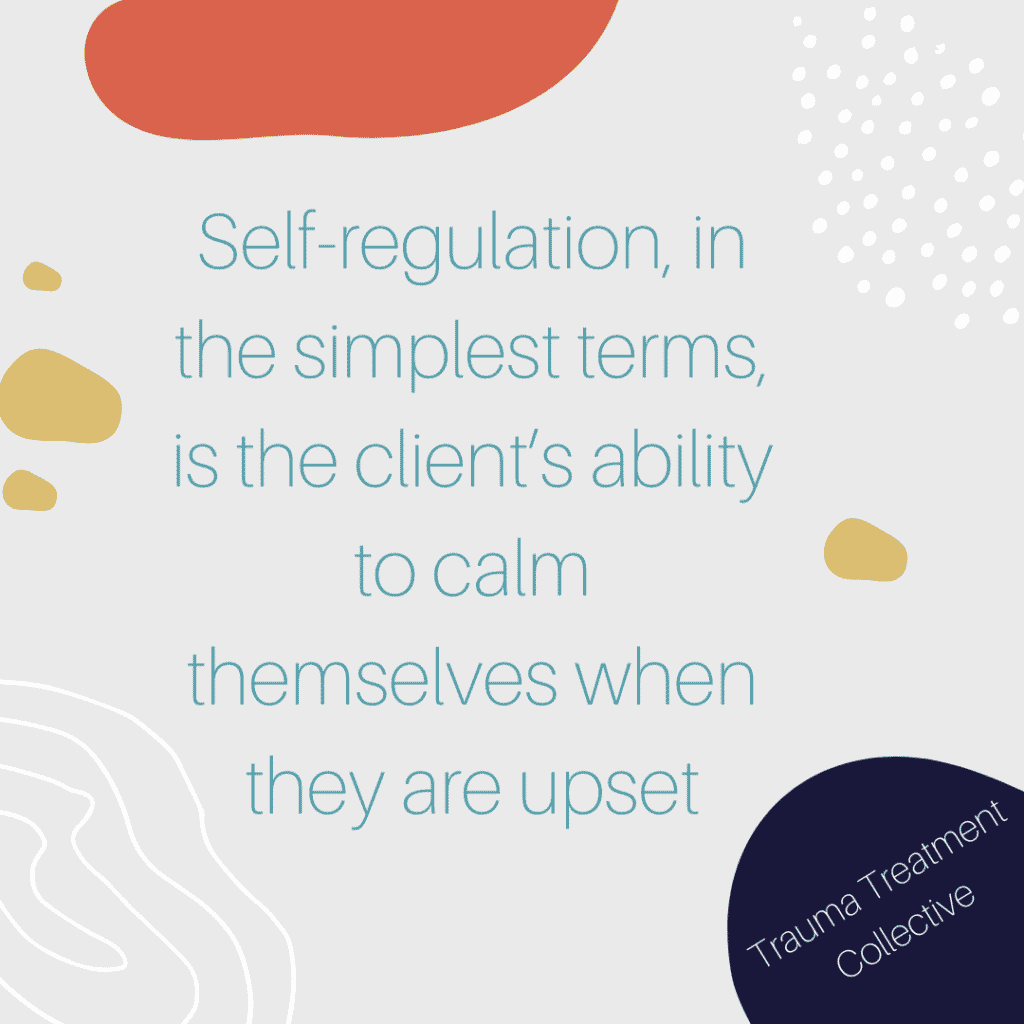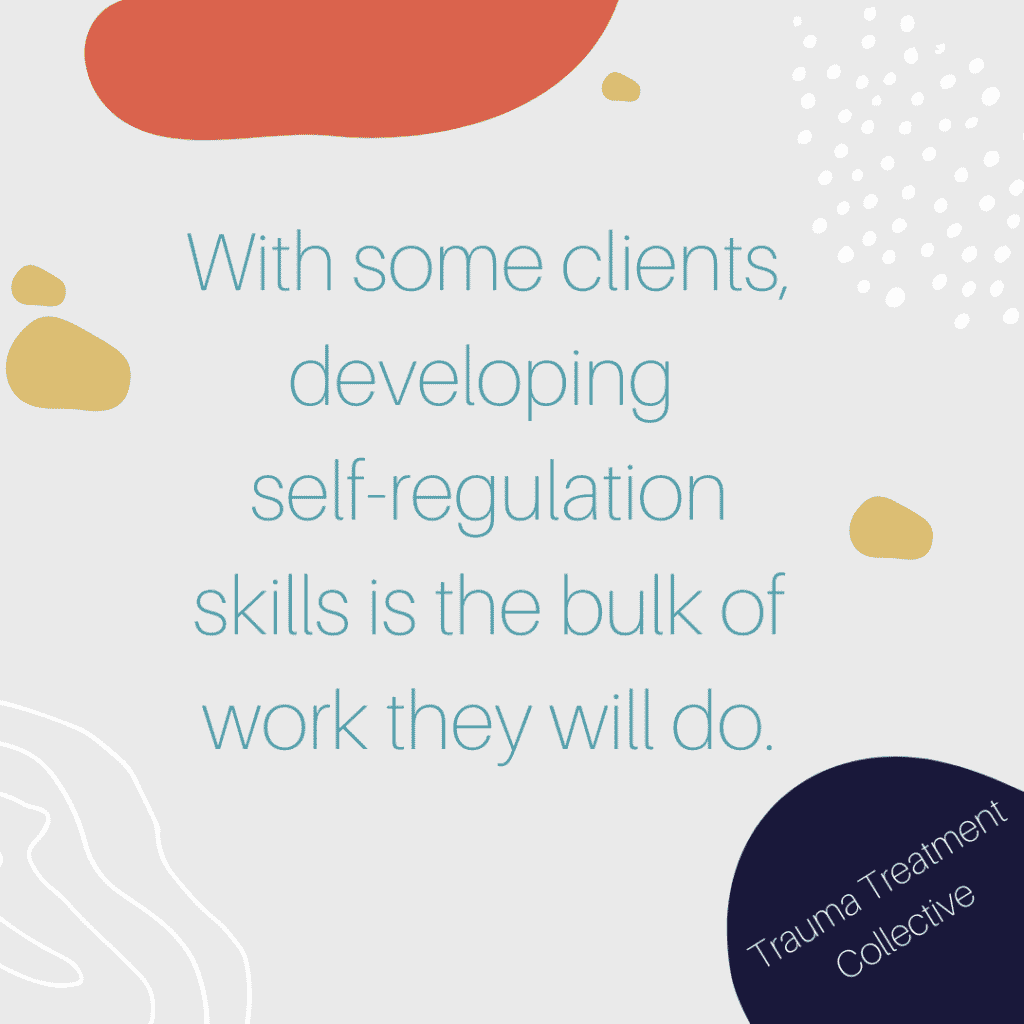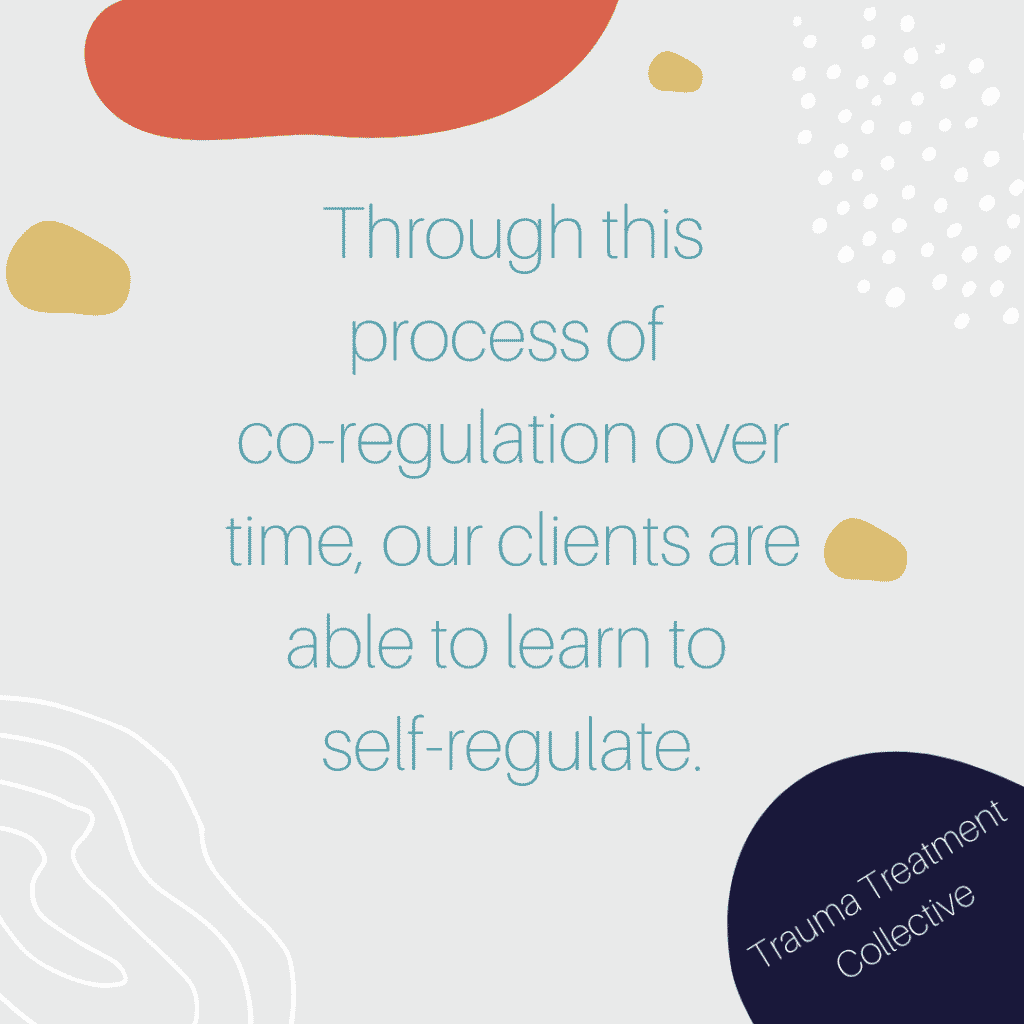
As a trauma treatment professional, you may have heard the term self-regulation. This is a common term used in connection to trauma treatment. Self-regulation is the ability for a person to soothe overactivation within their nervous system. In the simplest terms, it is their ability to calm themselves when they are upset. This skill is commonly developed in childhood. For a number of reasons, our clients don’t always develop the skill or if they do, they don’t necessarily develop the healthiest self-regulation practices.

Helping clients develop healthy self-regulation skills is vital to the trauma treatment process. With some clients, developing self-regulation skills is the bulk of work they will do. Without self-regulation in trauma treatment, clients are at risk of retraumatization, feelings of stuckness, and an overall risk of abandoning the treatment process altogether.
As you can see, self-regulation is important to a client’s trauma healing journey. Just as a child learns to self-regulate with their caregiver, we can teach our clients to regulate in the safety of our healing relationship through co-regulation.

Co-regulation is commonly mentioned in relation to infant care. It is the ability for the caregiver to be regulated and share that regulation with the child, which over time enables the child to learn to self-regulate. This same concept can be used in trauma treatment. As professionals working to regulate ourselves, it allows us to co-regulate with our clients (which, again, is the ability to share regulation with a dysregulated individual in your presence). Through this process of co-regulation over time, our clients are able to learn to self-regulate.
In the next couple of blogs, we will talk about 1) ways to assess your own self-regulation and the availability of co-regulation with clients and 2) ways to increase your self-regulation and co-regulation skills in session. We want to help you harness the power of co-regulation in trauma treatment.

